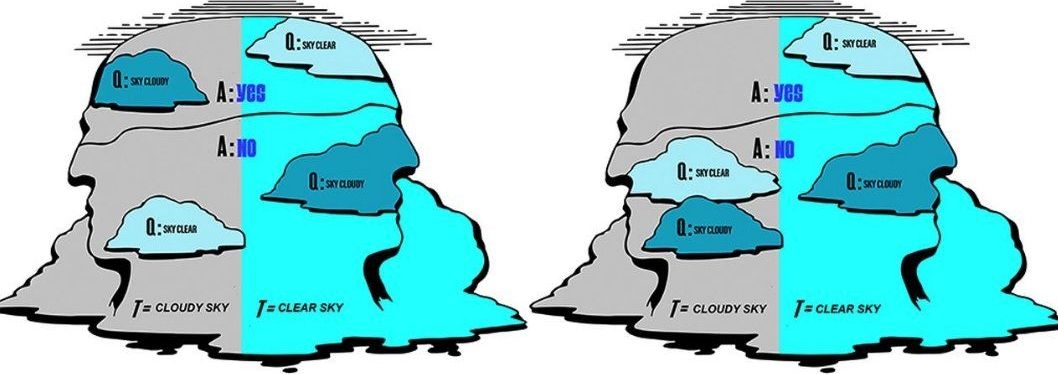A new proof by SFI Professor David Wolpert sends a humbling message to would-be super intelligences: you can’t know everything all the time.
The proof starts by mathematically formalizing the way an “inference device,” say, a scientist armed with a supercomputer, fabulous experimental equipment, etc., can have knowledge about the state of the universe around them. Whether that scientist’s knowledge is acquired by observing their universe, controlling it, predicting what will happen next, or inferring what happened in the past, there’s a mathematical structure that restricts that knowledge. The key is that the inference device, their knowledge, and the physical variable that they (may) know something about, are all subsystems of the same universe. That coupling restricts what the device can know. In particular, Wolpert proves that there is always something that the inference device cannot predict, and something that they cannot remember, and something that they cannot observe.
“In some ways this formalism can be viewed as many different extensions of [Donald MacKay’s] statement that ‘a prediction concerning the narrator’s future cannot account for the effect of the narrator’s learning that prediction,’” Wolpert explains. “Perhaps the simplest extension is that, when we formalize [inference devices] mathematically, we notice that the same impossibility results that hold for predictions of the future—MacKay’s concern—also hold for memories of the past. Time is an arbitrary variable—it plays no role in terms of differing states of the universe.”
